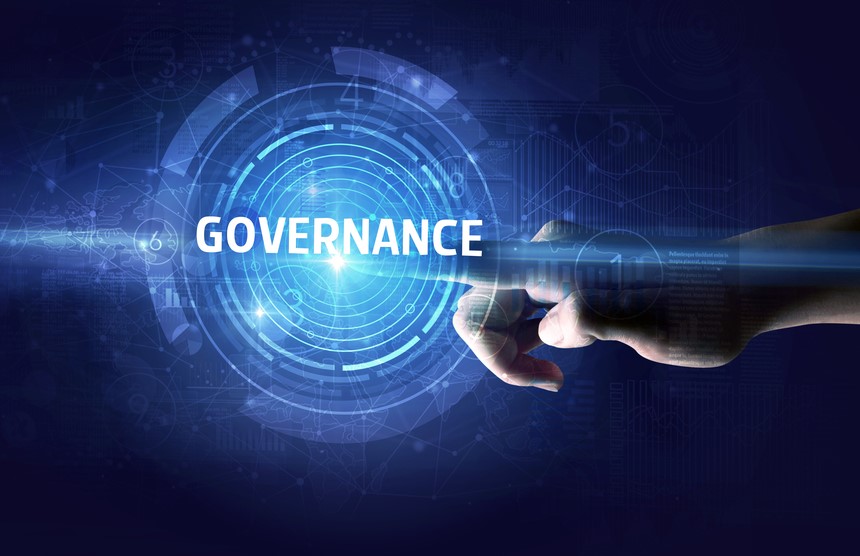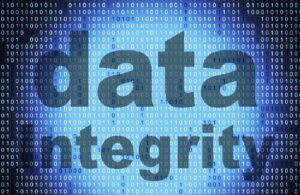
At the recent Gartner Data & Analytics Summit Brett Roscoe, SVP & GM, Data Governance & Cloud Ops for Informatica agreed to an interview with Cloud Data Insights (CDI). While sharing his thoughts on his customers’ technical challenges and emerging opportunities, he explained why Data Governance has become the unifying principle across Informatica’s portfolio. It’s not just about integration anymore.
(The interview has been revised for clarity and readability. See Brett Roscoe’s bio at the end of this article.)
CDI: Your title has recently changed from GM of Cloud Data Integration to SVP & GM, Data Governance & Cloud Ops, and your brief now covers the entire platform. At last year’s Gartner D&A Summit opening keynote, “Governance” was the admittedly “scary” word that could not be ignored. What’s behind Informatica’s emphasis on Data Governance?

Brett Roscoe: Our governance system, built across the portfolio, but particularly in Informatica Intelligence Data Management Cloud (IDMC), aims to enhance governance capabilities for businesses and for a wider range of data across various organizational structures, departments, and citizen users. We strive to simplify data governance by making it less technical and hands-on and automating the process. Our goal is to let companies allocate resources for innovation and gaining insights from data by minimizing the time spent on lineage, classification, and oversight. This is made possible through our cloud data governance data catalog capability, which integrates quality catalog and governance into a single interface. This feature allows users to quickly check the data’s quality and score by hovering over datasets while also providing previews of lineage. We gather metadata and lineage from various services without having to set up everything manually, and we even have an inferred lineage capability that makes the process more efficient. These innovative features help scale governance practices.
CDI: In our experience, the people responsible for data governance aren’t in the same organization as the technical people who implement the tools. Your portfolio supports a universal data governance point of view. Are you seeing any cultural shifts occur as a result?
Brett Roscoe: Our products have interfaces for technical users and interfaces for business users, so not everyone has the same view depending on what their role is. Our goal is to broker that divide. There’s the business user interface with the things they care about, but there’s the technical person’s interface where they can dive down and do all kinds of things that maybe the business user doesn’t care about. However, they’re looking at the same metadata and the same data. That’s the key thing –we’re not separating those into different activities. We’re letting everybody have a different view of the same data based on their role and what they’re trying to accomplish. We’re trying to facilitate some of that cultural shift, though I don’t know we’ll fix it perfectly. I think companies are coming to grips with various roles needing to work together. They don’t necessarily need the same skill set, but they need to be looking at the same data.
CDI: You mentioned an inferred lineage capability, which must rely on AI, as would much of the automation you’ve talked about. Tell us more.
Brett Roscoe: Although AI is currently creating hype, we have been investing in its capabilities since the early days of cloud. It remains a core aspect of our operation. We built our cloud platform taking AI into consideration. Our AI engine, CLAIRE, is like a personality within our organization, and we use it across many use cases to drive automation. Our capabilities include glossary associations, end-to-end mapping, and auto-classification, where AI will find your sources and provide a list of recommended mappings, as well as data rules for governance. Our 18 petabytes of metadata are the basis of this value proposition. This year, we’ll be adding natural language interfaces for even more accessible AI usage. We are very invested in simplifying data management and democratizing data usage through AI-driven automation.
See also: The Data Governance Solutions Landscape is Evolving
CDI: We’ve been asking executives here at the Gartner D&A Summit how have customers’ needs or attitudes changed given current economic conditions and post-pandemic digital transformation?
Brett Roscoe: The overall demand environment appears restrained but generally healthy. More than three-quarters of our new business pipeline is made up of cloud opportunities. However, as many other tech companies have also noted, deal cycles are elongated, and deals face more budget scrutiny. Bottom line: deals are getting done, and our pipeline is strong, but we feel it is prudent to expect some headwinds during the year.
We are leaning in on some areas. For example, we recently launched a new, free data integration offering that includes free 20 million rows (or) 10 compute hours every month. This should really help less technical users figure out how to start getting more access to data without a big investment in a big platform.
CDI: What are the main technical challenges your customers face? Does this mark a change from a year ago?
Brett Roscoe: Data growth, data sprawl, and data governance-related issues continue to be challenges. Customers are still dealing with migrating to the cloud. And some customers who were early cloud adopters are now worried about cloud costs.
CDI: Which emerging technology or business trend do you think will have the most impact on your company or your customers?
Brett Roscoe: Demand for data management will continue to be fundamentally driven by cloudification and digital transformation. We are not done yet. All businesses and all verticals want to be as modern as practically possible, and a very important lynchpin of that is being data-driven. The current macro/geopolitical situation is causing limited lengthening in the demand cycle, but those are not structural…they are reactionary to day-to-day market news and volatility.
There is big pressure on corporations to demonstrate operating leverage (aka profitability), and without technology-driven modernization advances in their operating model, creating operating leverage will be a challenge.
CDI: At this year’s Gartner Summit, one of the themes is cost optimization. Does your new offering include data cloud management and computing resources as well as the tooling? The cost of hosting data in the cloud and intensive computing is what has caught many cloud users by surprise.
Brett Roscoe: People are very cost conscious given the current macroeconomy. Our products also include FinOps tools across the board that help customers have a better idea of what and how much they’re using and know who the heavy users are. How do they meter that, monitor it, and control it? Many of the customers we talked to about this have been in the cloud for a while. They tell us things like, “Hey, we’ve got a group that we need to limit them to a few cores, a couple 100 million rows of integration versus our analytics team that might get full rein because they need to have the horsepower. Customers are really trying to figure out how to have visibility, how to have control, and minimize cost.
CDI: Not everyone can go to a Gartner Data & Analytics Summit, and many of our readers are curious about this event. What did you hope to gain from attending?
Brett Roscoe: The biggest thing I get out of these kinds of things are the relationships– meeting customers, other vendors, analysts, press, everybody because everybody is interesting. I’ve been in the data business in some way for 30 years, and the way I see the world is always shaped by the different inputs I get from all those around me. Sometimes, analysts can be a little bit behind where the market is, and sometimes they can be ahead. Customers can be early adopters or lag a little. Other vendors can have new products that are interesting and provide perspective. All of that together helps me look at this industry holistically and say, Okay, what are the right investments, the right strategy, because my whole job is to make sure I’m optimizing resources. I’ve got engineers developing code right now. So how am I making sure I’m pointing them in the right direction? And so this kind of event is awesome, just in terms of giving me great input, helping me see things from a different perspective, bouncing what we’re doing off of industry experts and getting their input–it’s all very valuable for me.
Bio: Brett Roscoe is the Senior Vice President and General Manager for the Informatica Cloud Data Governance, CLAIRE, and Cloud Trust businesses at Informatica. Brett brings over 30 years of experience in Product Management, Development, and Marketing, which includes launching and expanding new products as well as driving high-growth products and solutions through dynamic market conditions. Before Informatica, Brett most recently worked at NetApp, where he led Product Management for the Hybrid Cloud Group.
Elisabeth Strenger is a Senior Technology Writer at CDInsights.ai.


